insert_linkThe Best Value Sleep Tracking Smartwatch
Providing a solid load of useful features at such an affordable price, the Fitbit Versa is certainly a superior option for those wishing for sleep-tracking excellence—despite the few problems.
insert_linkYou Know Less About Last Night Than You Think
As we all know, sleep is paramount for a happy, healthy, and productive lifestyle. Alas, it is equally obscure to us, since we’re not really fully conscious when we engage in such activity. This problematic reality, though, can be changed with the help of a sleep tracking smartwatch!
Otherwise, you are left guessing how long you slept based on when you got into bed and when you awoke. Obviously, this will produce inevitable inaccuracies regarding the under/overestimation of the time it takes for you to get to sleep.
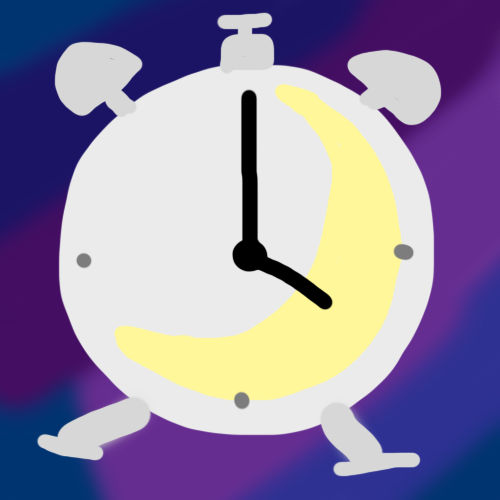
Sure, while you could take the average time (about fourteen minutes or so), it’s merely an average. In other words, everyone is different, so you need to find out your sleep patterns specifically.
Moreover, even if you can accurately estimate how long you’ve slept, that’s still not the whole story. For instance, there is no concrete indication of your quality of sleep.
Even if you get plenty of time in bed, that does not mean that your sleep quality is optimal.
Sleep stages—the phases of sleep we go through each night—also play a key role in all of this. And it’s important that you have an awareness of it.
Before we begin looking at a sleep tracking smartwatch, let’s first see how they can benefit you.
Cheaper ways to live happier: How to Sleep Easily for More Happiness and Better Focus
insert_linkWhy Should I Use a Sleep Tracking Smartwatch?
But why is it necessary to know exactly how long and how well you’ve slept? Why is it worth spending even more money on a sleep tracking smartwatch—or a sleep tracking anything? Good questions indeed.
insert_linkMeasuring How Long You Sleep Each and Every Night
Firstly, measuring how long you’ve slept is important for two straightforward reasons:
- So that you can get clarity as to whether you’re getting enough sleep.
- What gets measured gets improved!
insert_linkAchieving Complete Enlightenment
You may not know it; you may think that you’re actually getting sufficient quantities of sleep per night. However, you may be wrong—so very, very wrong.
What if it takes longer than you think to get to sleep after having gotten into bed? Perhaps you haven’t read this article, therefore, you don’t know how to “wind down” your brain effectively prior to bedtime.
Equally, you might be spending more time than you initially anticipated being awake during sleep. That’s right—it’s perfectly natural to spend time awake whilst sleeping. It’s just that you don’t remember it.
Tracking your sleep—whether through a sleep tracking smartwatch or something else—is a certain way to become enlightened; enlightenment is vital for improvement; otherwise, how do you know where to start?
insert_linkTracking Your Progress
Then you’re faced with the timeless concept:
“What gets measured gets improved”
Peter Drucker, author of The Effective Executive

Accordingly, the mere act of measuring how long you sleep will help motivate you to sleep more. This is especially helpful for people who struggle to meet their nightly sleep quota.
Simply being able to view the statistics will consequently force you to realise the situation with immense clarity. Perhaps, perhaps then, you will summon the willpower to head to bed.
From that point onwards, your situation subsequently gets better, right?
After all, a single act of an early night delivers more sleep, hence boosting your willpower and discipline the following day. As a result, you find yourself promptly going to bed that day and the next day etc.
It’s a positive spiral of progress!
But if you do find yourself “falling off the wagon”, measuring your sleep helps you realise it. Thus, you are more likely to self-correct, or at least prevent things from getting too bad.
This is the power of measuring sleep.
More willpower hacks: 9 Self-Control and Discipline Strategies: Break Free Now!
insert_linkFinding Out What Stage of Sleep You Were in At Any One Point
Secondly, it can be tremendously useful to monitor the stages of sleep through which you cycle. Like a bicycle, we can measure this too with a sleep tracking smartwatch.
Okay, you see the value in the duration of sleep, albeit maybe you’re not so convinced with the sleep stages. Trust me, working around your sleep stages is critical for a good night’s sleep.
Why is that? A few reasons:
- To ensure that you are always waking up feeling refreshed and ready to get productive!
- To see what influences the time you spend in each stage, so you can optimise that accordingly for your desired results.
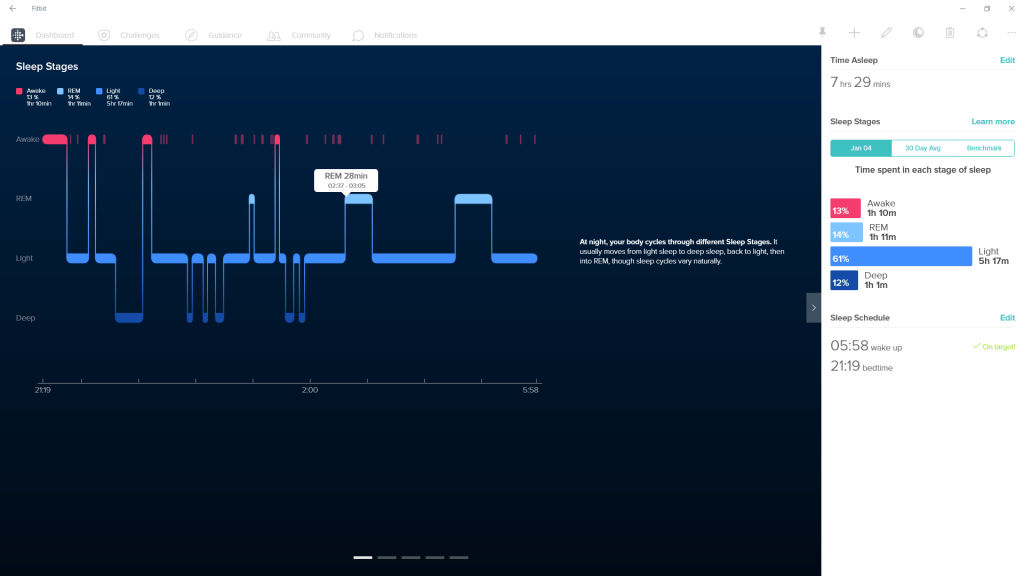
insert_linkWake up Refreshed, Not Befuddled
Have you ever questioned what causes you to wake up especially refreshed? While an adequate sleep duration is essential, there is another important factor:
The stage of sleep in which you wake up can define your mood for the rest of the day.
This is why we plan our sleep in 90-minute chunks because that’s how long a sleep cycle lasts—on average. (Of course, a stage-sensitive sleep tracker will assist you in discovering your average.)
So, by tracking your sleep stages with just a smartwatch, no abundant sensors, you can optimise your bedtime. To demonstrate, you would pick a time at which you most frequently are ending a sleep cycle. Or, more simply, during periods of light sleep.
Excited yet? Well, that’s not all: Get a sleep tracking smartwatch that wakes you up during said period of light sleep, and you’re in business! You’ll see where you can get this smart technology later…
Never feel groggy again!
insert_linkHow Much Time Do You Spend in Each Stage?
The time you spend in each stage can also be useful for analysis.
- First, learn how your sleep duration affects the time in each stage
- Second, see how your bedtime affects the sleep stages
- Third, grasp an idea as to what affects your sleep stages
- Fourth, find out how your sleep stages affect your daily mood and concentration—the juicy data.
To exemplify, extended periods deep sleep helps with feeling refreshed—something you can actually verify (like I have) with a sleep tracking smartwatch device.
With this in mind, light sleep can be made to look like something useless, since it is a “filler”. On the contrary light sleep is equally important for other brain-maintenance tasks.
These sleep stages affect your balance of hormones, as well. Therefore, I wouldn’t say that they aren’t worth your time.
In fact, these are all mightily useful things you learn about when you invest in tracking your sleep!
insert_linkThe Fitbit Versa: The Best Sleep Tracking Smartwatch at an Affordable Price?
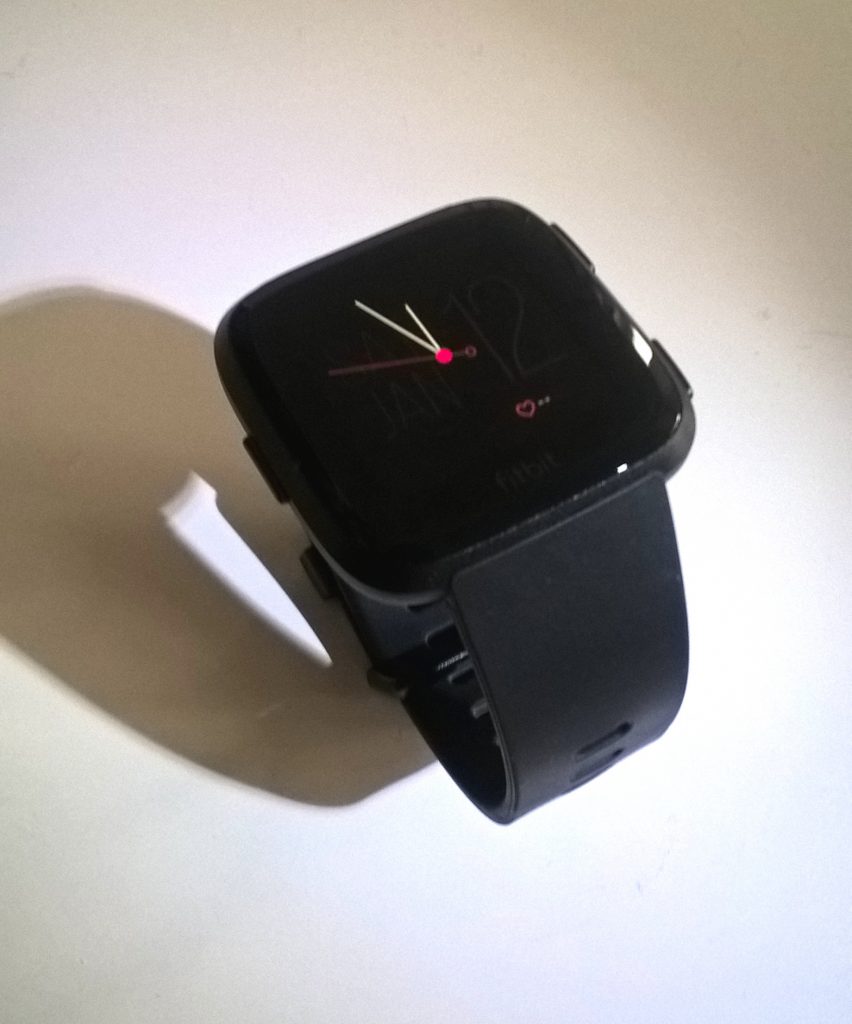
Having said all of that, how exactly do we go about tracking our sleep again?
As a matter of fact, there are numerous approaches, including:
- Sensors beneath your mattress or bed sheet
- External sensors that sit on your bedside table, for example
- Wearable sensors, such as sleep tracking smartwatches or bands.
In addition, different devices may track different metrics. In this case, however, we are going to discuss a nifty sleep tracking smartwatch that I have been using for over a month now: The Fitbit Versa.
insert_linkWhat Makes This One Different
The Fitbit Versa fulfils the criteria discussed earlier in every way for measuring and improving sleep. (Admittedly, it cannot improve your sleep directly, as such, but it can help you do so.)
Furthermore, it doesn’t just track your sleep—it is far more capable than that! Perhaps this is what makes it a good deal when considering the price and utility as a smartwatch.
To demonstrate, compare this to an Apple Watch, which doesn’t even have any practical sleep tracking capability. While the Versa doesn’t share that Apple-grade experience, it stands out as the smartwatch that tracks sleep—and it’s substantially cheaper!
But the Apple Watch is good! Are Macs Worth It? Most Revealing Arguments from a PC User
This functionality of a smartwatch with a decent selection of apps will undoubtedly appeal to many. Nevertheless, some of you may not need this or you would rather spend less money on a wearable gadget.
In the aforementioned case, Fitbit also offers other sleep tracking fitness trackers, such as the Charge 3 (which I almost bought). Also, Garmin provides a rich variety of their sleep tracking wristbands.
insert_linkHow the Fitbit Versa is Needed for Your Sleep
Fitbit offers their “Sleep Stages” feature, which empowers you to record the stages of sleep you go through each night. Powered by estimations using heart rate sensors and motion data, these can prove to be heavily insightful.
What’s more, all you have to do in order to reap these benefits is wear the sleep tracking smartwatch to bed; it detects when you sleep automagically!
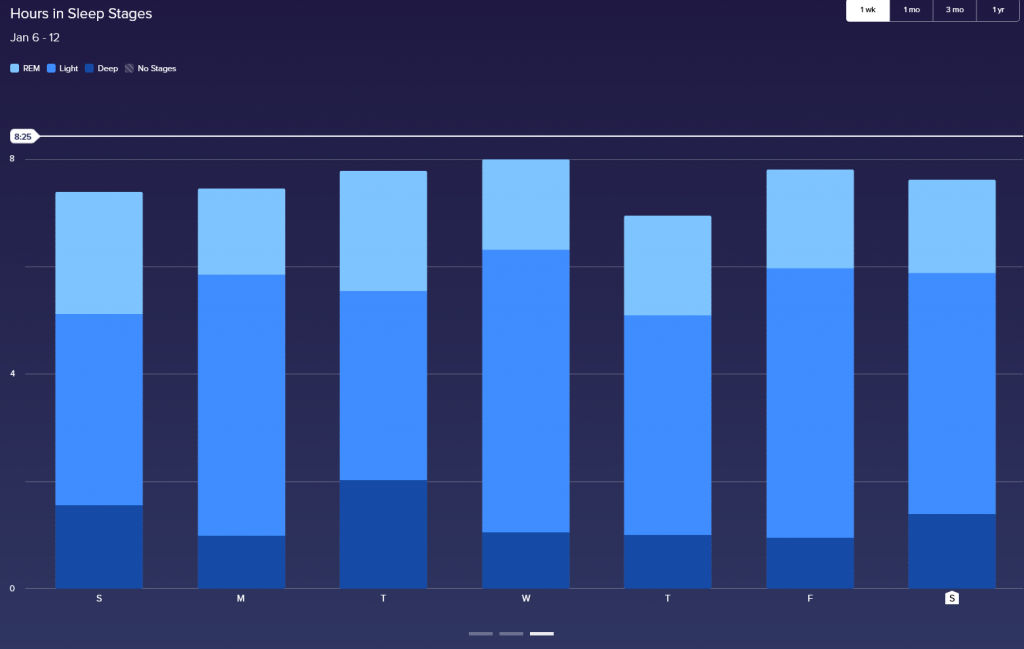
As a result, you get the unstirred truth—how many hours you slept. A profound insight that can be tracked over time, alongside stages, like butter.
No more guessing how long you really, truly, and honestly-to-the-saviour-Elon-Musk slept!
Additionally, Fitbit’s newer devices pack a sneaky SpO2 sensor—which, interestingly enough, remains dormant. For now.
In the future, though, we can expect Fitbits “Sleep Score” to roll out (the beta programme is currently active). Promising deep personalised insights from a plethora of data, this will go even further in helping you understand your sleep.
In addition, this SpO2 sensor might allow a mere sleep tracking smartwatch to pick up on sleep apnoea.
And that’s not all—read on and we’ll discover how the Fitbit Versa can give you the best mornings of your life, consistently!
Fitbit is—very evidently—investing a fair bit in sleep tracking technology. Sleep is, after all, fundamentally important for a meaningful, productive life.
insert_linkPhysical Design and Hardware
To begin with, the Fitbit Versa comes in a variety of different configurations; this is not just due to the numerous colours available for the body, but also the numerous straps (bands) of different colours and materials.
To exemplify, you can get a hold of a premium edition device with more expensive woven bands.
insert_linkBuild Quality
Feeling as though it were plastic (hence not cold), the body of the Versa is constructed from anodised aluminium. This definitely contributes to the overall sturdy feel to the device.
Moving onto the screen, the glass used is Corning Gorilla Glass 3, which is known for its exceptional durability. Despite this, I’ve seen the occasional review—the horror stories—of this very screen being scratched.
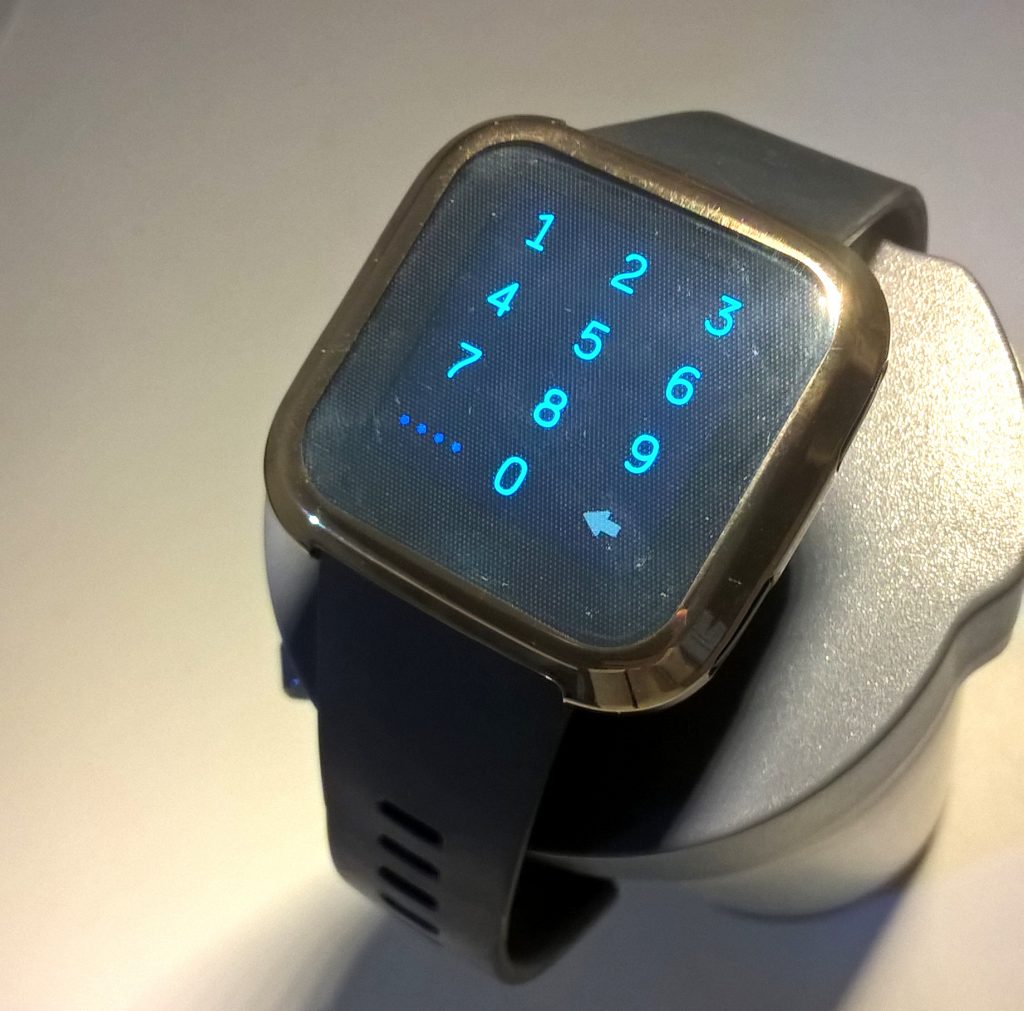
Therefore, I’ve invested in this protective case, which uses a soft, flexible plastic that can easily be clipped on and off. Better safe than sorry!
It does, unfortunately, decrease the vividness of the screen and isn’t as pleasant to touch as a touchscreen. For this reason, I exclusively wear it when I’m going out into the jungle-like wilderness (e.g. the outside world).
On the contrary, the positives: the screen is super-satisfying to swipe, scroll, tap, and hit. Equally, the glossy finish does a beautiful job of helping those bright, vivid colours show through.
Also bringing those colours through: MX27AQ Review: Perfect Monitor for Cheap Professionals
insert_linkBattery Life and Charging
As advertised, the watch manages to maintain around a 4–5-day lifespan on a single charge. Of course, this exact figure depends on your individual usage.
Consequently, it makes a good candidate for a sleep tracking smartwatch—as you can’t charge it overnight. Obviously.
Instead, I recommend charging during uneventful times, in order to maintain the meaning in your statistics. For instance, I clip it into the provided charging cradle whenever I go to have a shower in the morning. During those 20 minutes or so, it builds up around about the charge lost the prior day.
However, if remembering to charge seems too much of a difficulty for you, the Charge 3 (aptly named) boasts a longer battery life—7 days. At the expense of a greyscale screen and other drawbacks, that is.
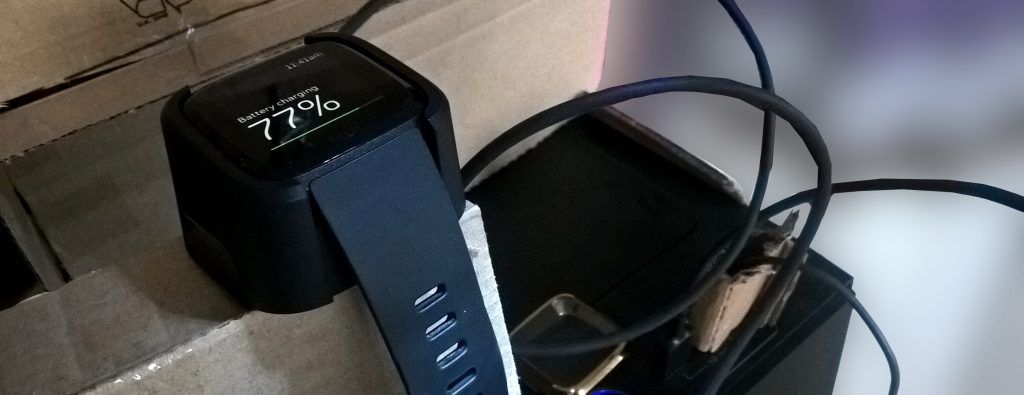
insert_linkComfort
The included classic band is made from a durable elastomer material which feels comfortable on the wrist. Accordingly, I don’t feel like I have a reason to upgrade. That being said, I haven’t tried any of the more expensive bands.
Furthermore, the watch device itself doesn’t promote any uncomfortable feelings on my skin; it has a rather smooth profile that has never posed any sort of issue.
Now, seeing that I bought it primarily as a sleep tracking smartwatch, how does it hold up when sleeping?
You would have thought that wearing a watch to bed would be uncomfortable—perhaps even unbearable. On the contrary, the experience isn’t actually that bad. Though, we all have varying personal preferences.
At first, it feels slightly odd, but that eventually passes, and you become used to it. So, your sleep tracking smartwatch can abstract data from your tender skin with minimal intrusion!
I would recommend not wearing the case mentioned earlier—and then you’ll be toasty.
insert_linkSoftware, Apps and Functionality
Just download the Fitbit app—subsequently, you’ll see that the Versa is very versatile.
insert_linkInterface
In Fitbit OS, you’ll find that the interface looks nice, feels snappy, and is rather intuitive to use. You know, it’s consistent, clear, and complementary to the hardware.
But what about the watch face? Can you customise that?
Indeed, with the vast selection of free and paid watch faces available, I’m sure there’s something for you. Some even go so far as to deliver settings—only more opportunity for customisation.
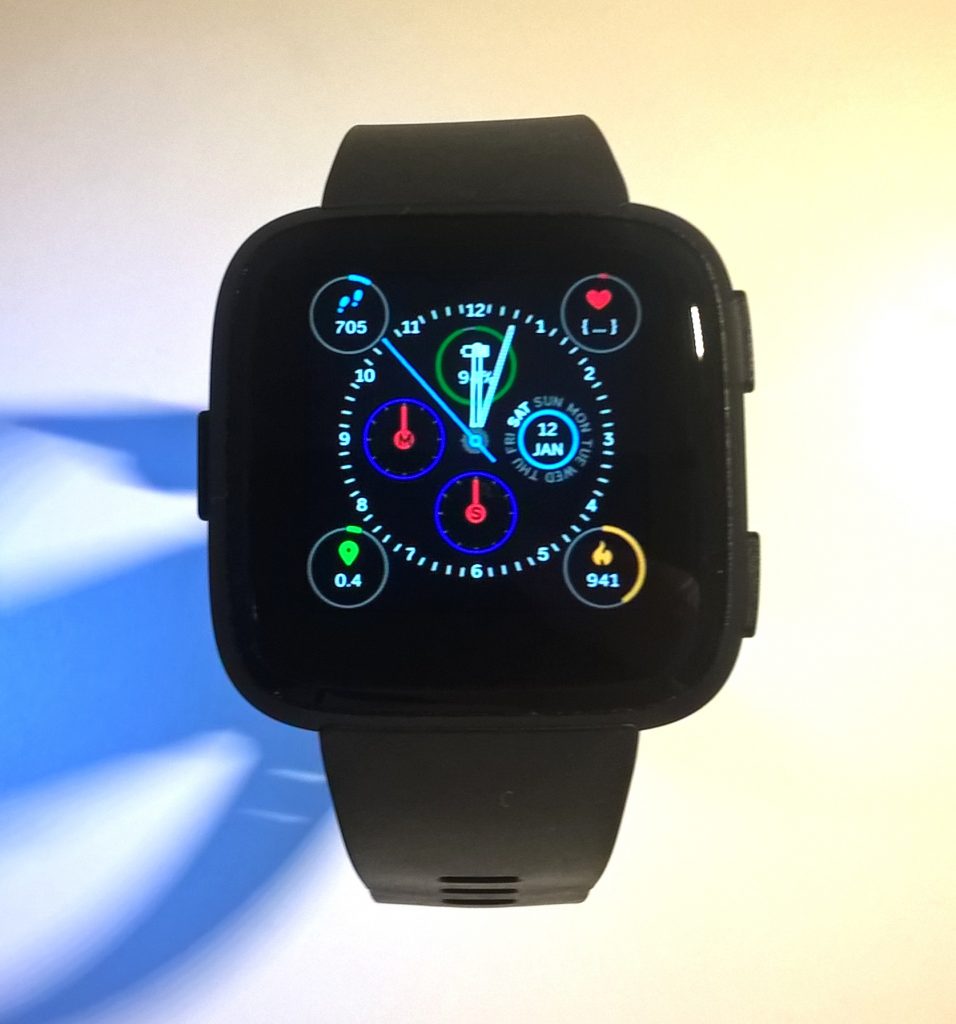
insert_linkApps
Unlike, say, the Apple Watch App Store, the selection of apps you’ll find for the Versa is not spectacular. In other words, don’t expect to find many “big brands”.
Equally, I wouldn’t want you to be mistaken: there are a few good apps. Although, I find I rarely use third-party software on the Versa; I bought it primarily as a sleep tracking smartwatch, most importantly.
Yes, I do use a few built-in apps such as the exercise, timer, and relax app. All of which have delivered great amounts of utility.
Speaking of exercise, the Versa is also a good way to monitor your health and fitness—as well as to motivate you. Hence the range of features (badges, goals, statistics etc) that constantly remind you to and encourage you to live healthily.
Give Windows more utility: 4 Incredible Taskbar Customisation Tricks You Need to Know
But you probably knew that—what don’t you know? I don’t know.
Nonetheless, I present to you a few supplementary features of potential value embedded within the Versa:
- Track your water intake straight from the smartwatch.
- Estimate your daily caloric expenditure and log your food intake with the Fitbit app. If you want to enhance your body, this is the way to go about it.
- Get into a productive state of work—anytime—with a third-party Pomodoro timer.
While these are undoubtedly appealing uses, they do not match the third-party app, Smart Alarm.
insert_linkNever Feel Groggy Again! Get Smart with Your Alarms
Remember how we were talking about how the sleep stage you wake up in affects how you feel throughout your day?
Well, the Versa can wake you up during a period of light sleep around your wake-up time. Or, rather, it can attempt to do so, and this functionality—in actuality—requires the helping hand of the aforementioned app: Smart Alarm.
Before compromising on the Versa, I spent my time searching the many corners of the internet for a device with this feature. But alas, this feature is a mere consideration to the Fitbit developers.
Regardless, a wonderful developer has realised this idea—using motion data to wake you up. Here is a brief overview of how this process flows:
insert_linkHow the Process of Waking up Refreshed Flows:
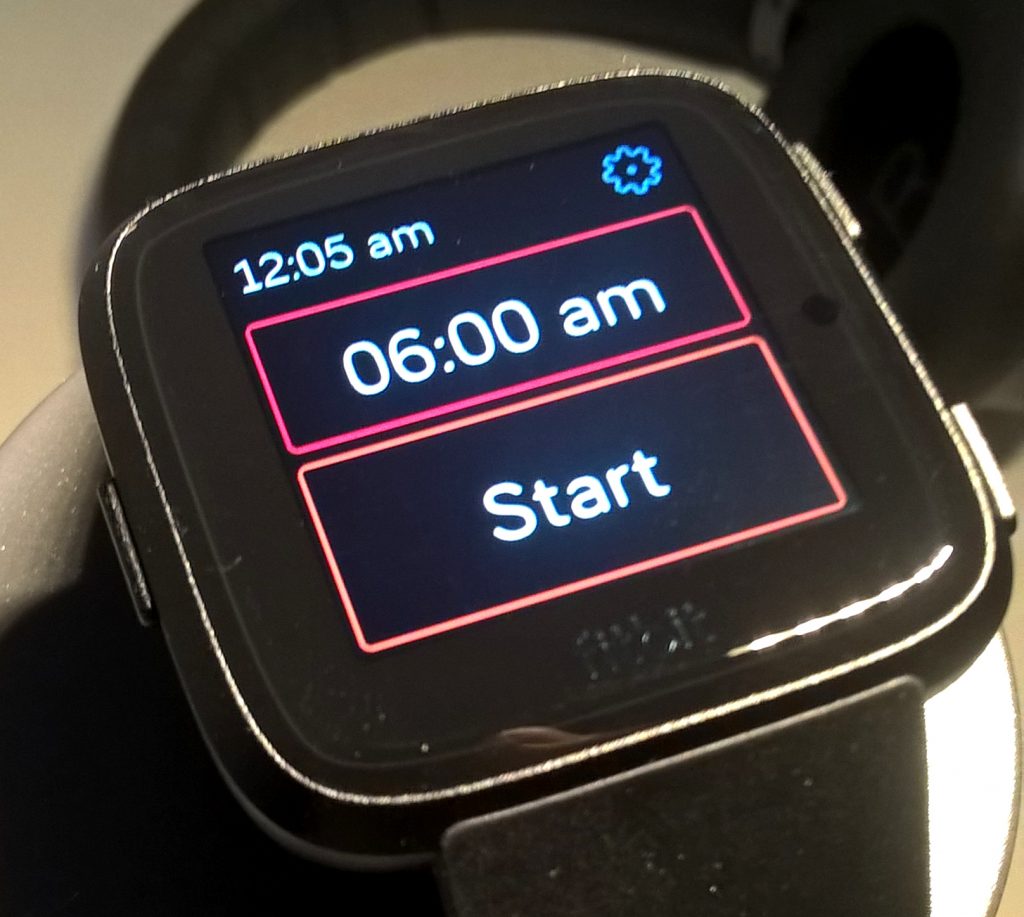
- You will set a time to wake up—at latest.
- Afterwards, you can configure a wake-up time window leading up to your wake-up time. For example, let’s say you isolated wake-up of 05:00 and a window of 30 minutes.
- The wake-threshold determines how sensitive it is to your movements. I’ve personally found that the “low” option is the best for me (highest sensitivity).
- Start the alarm, ensuring that you leave the app open.
- From—in our example—04:30 (30 minutes from 05:00) the application will start to look for an opportunity to wake you up like a dolphin bouncing on your chest.
- As soon as the device detects sufficient movement within the window, it will calmly vibrate. (Intensity of this vibration can be configured in the device’s settings.) If this is not the case, however, the device will wake you at the desired wake-up time.
- I command you to disable snooze!
- Finally, note that the wake-up window will always reset back to the standard 10 minutes.
insert_linkMy Handy Tips for a New Versa Owner
There are a few handy tricks that I discovered myself after having bought my Versa:
- Double-tap the device (or your wrist—it detects motion) to wake the screen. Unfortunately, though, this can act unreliably.
- Merely flick your wrist to wake the screen instead (assuming that auto-screen-wake is enabled)!
- The two right side buttons perform corresponding actions in the top and bottom right corners of the screen.
- Take advantage of the ambient light sensor with auto display brightness in the settings (if not already enabled).
- Have some fun—meanwhile, supporting future innovation—with Fitbit Labs!
- Using Bluetooth, you’ll find the beautiful ability to control media (e.g. audiobooks) on your connected device.
- Maximising time-saving at a microscopic, convenience scale, the two first apps arranged next to the clock face can be accessed on the clock face with the help of the corresponding buttons. You subsequently have the ability to use this fun shortcut for your frequently used apps.
- Learn how to care for your device and band.
Inhale That Audiobook: My 3 Miracle Secrets to Absorb Knowledge [Super Quickly!]
insert_linkConclusion: Is This the Sleep Tracking Smartwatch for You?
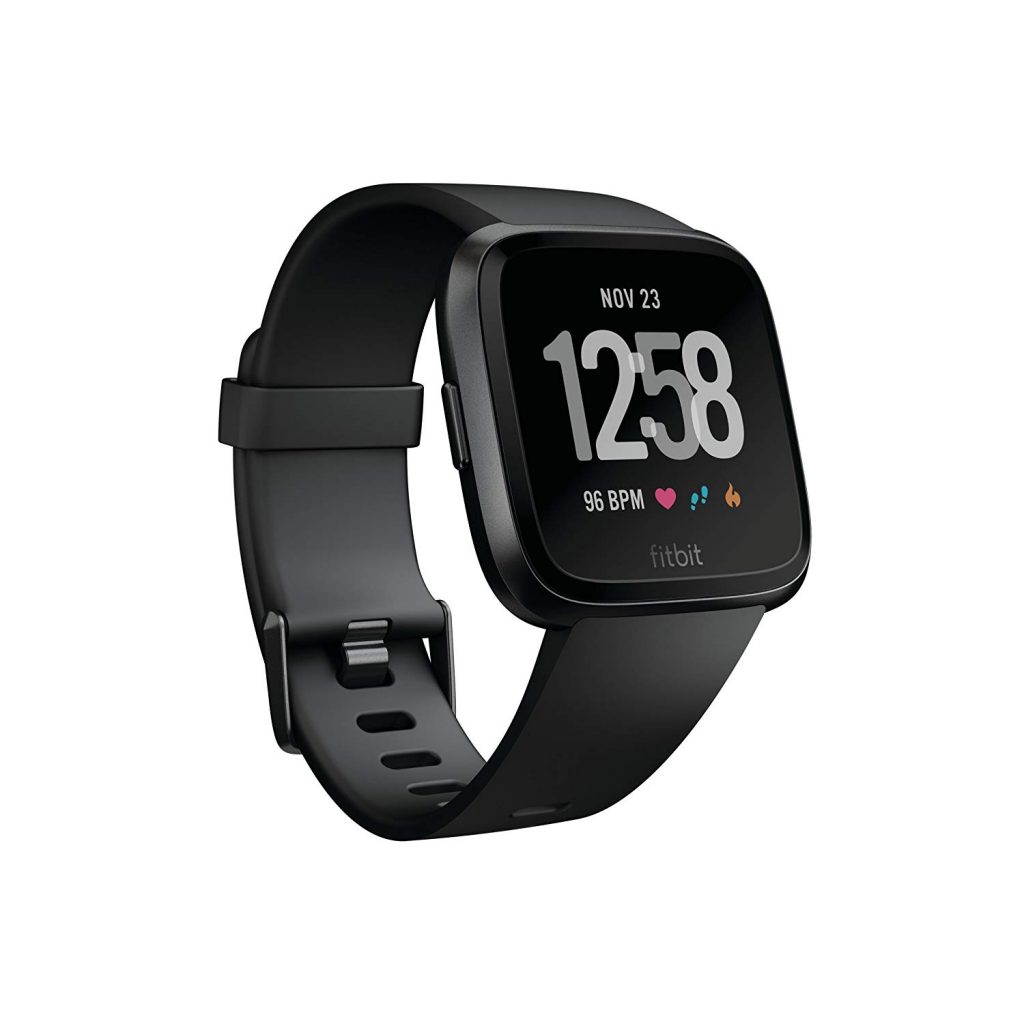
After having owned the device for a considerable time, I can testify that this blissful sleep tracking smartwatch is genuinely life-changing. Even if only in a small way.
The Smart Alarm has served me well, making me feel elated some days, and good on others. Likewise, Fitbit’s utilitarian sleep statistics have given me a clear insight into my sleep which I have never gotten before.
In fact, I might even go as far as to say that my sleep duration (and quality) has dramatically improved from the experience. And that’s not just for a few lucky days—but rather a long-term rise in sleep. Not to mention, the increased focus, alertness, and productivity that comes with that.
What’s more, the free Fitbit Coach sessions make doing basic cardio exercises straightforward for me.
So, what is it? It’s great for sleep—which yields countless benefits you should care about—as well as a simple tool for enhanced health.
insert_linkThe Alternatives That You Must Consider
Cheaper options, though, are available at a compromise of fewer features. But, of course, if you don’t need the sweet bonus, then, by all means, pay the necessary minimum for an improved sleep. Do note that the Smart Alarm is only available on Fitbit OS devices (I’m not sure about the Charge 3).
On the other hand, wielding a built-in GPS, the more expensive sleep tracking smartwatch by Fitbit is the Ionic.
Let’s say you’re an advanced fitness fanatic; you might want to consider investing in Garmin, who are also investing heavily in sleep tracking. Take a peek at their vast assortment of sleep trackers.
At last, if you have money yet no desire for wrist-worn sleep tracking, just get an Apple Watch.
Look, Jimmy! It’s just what you wanted for Christmas: 55 Productive Things to Do in 2019 (The Best of 2018)



